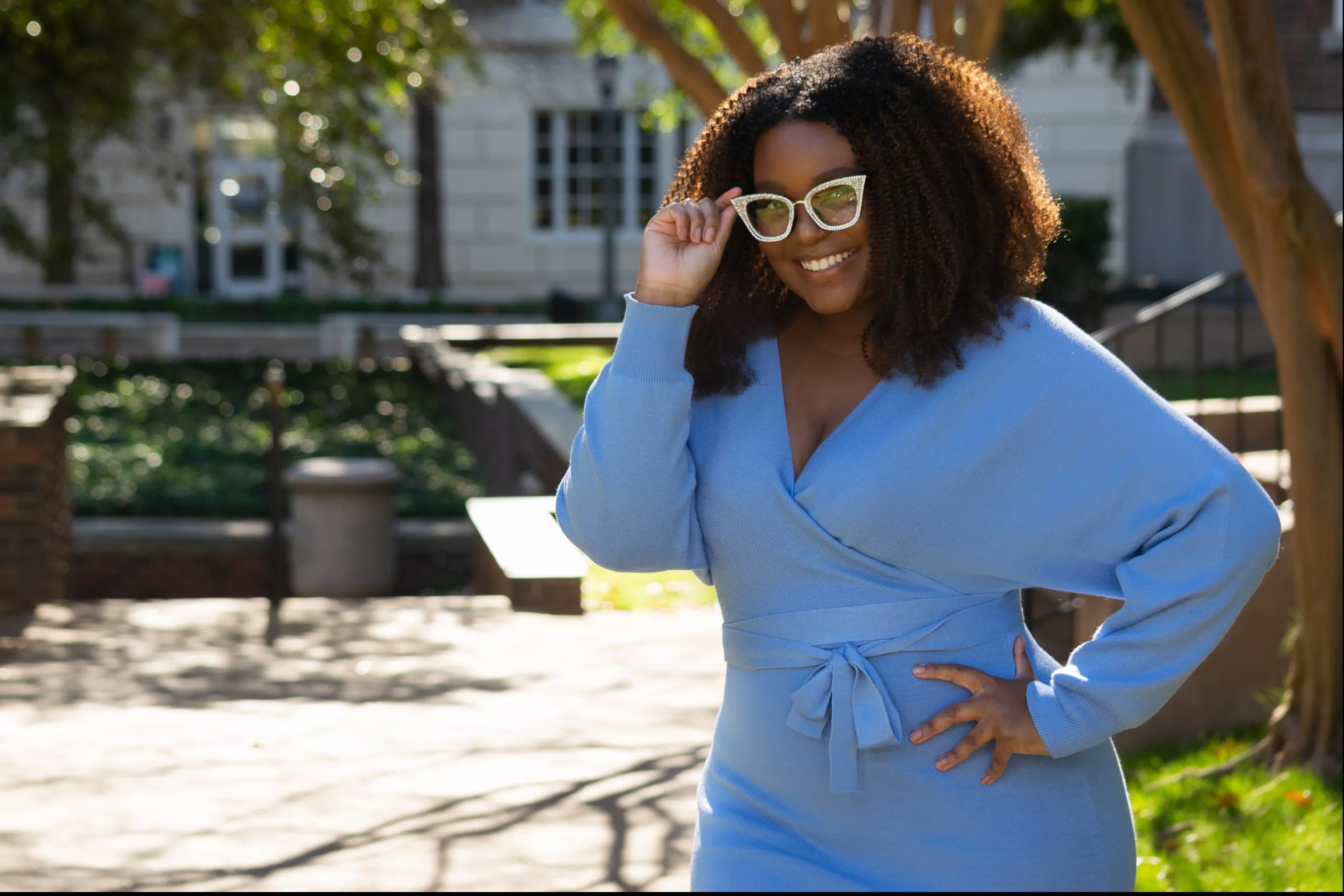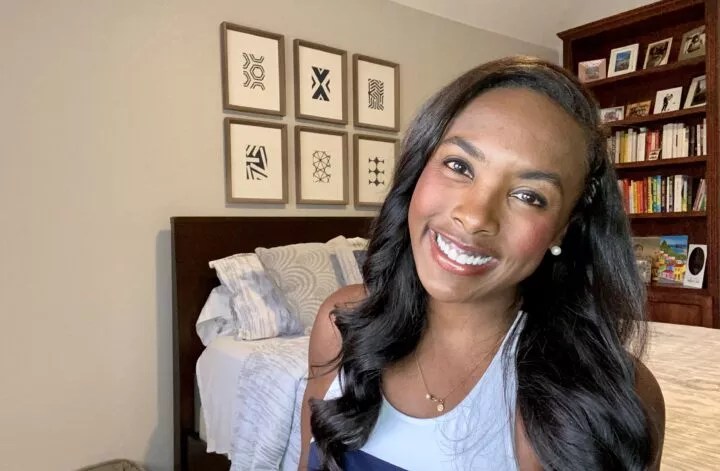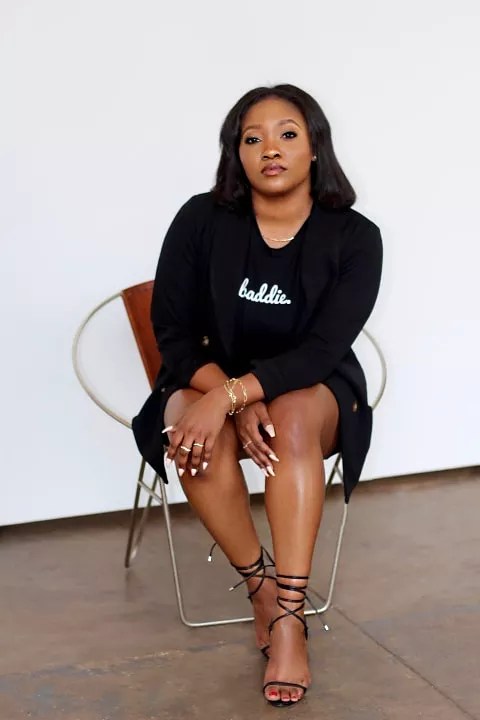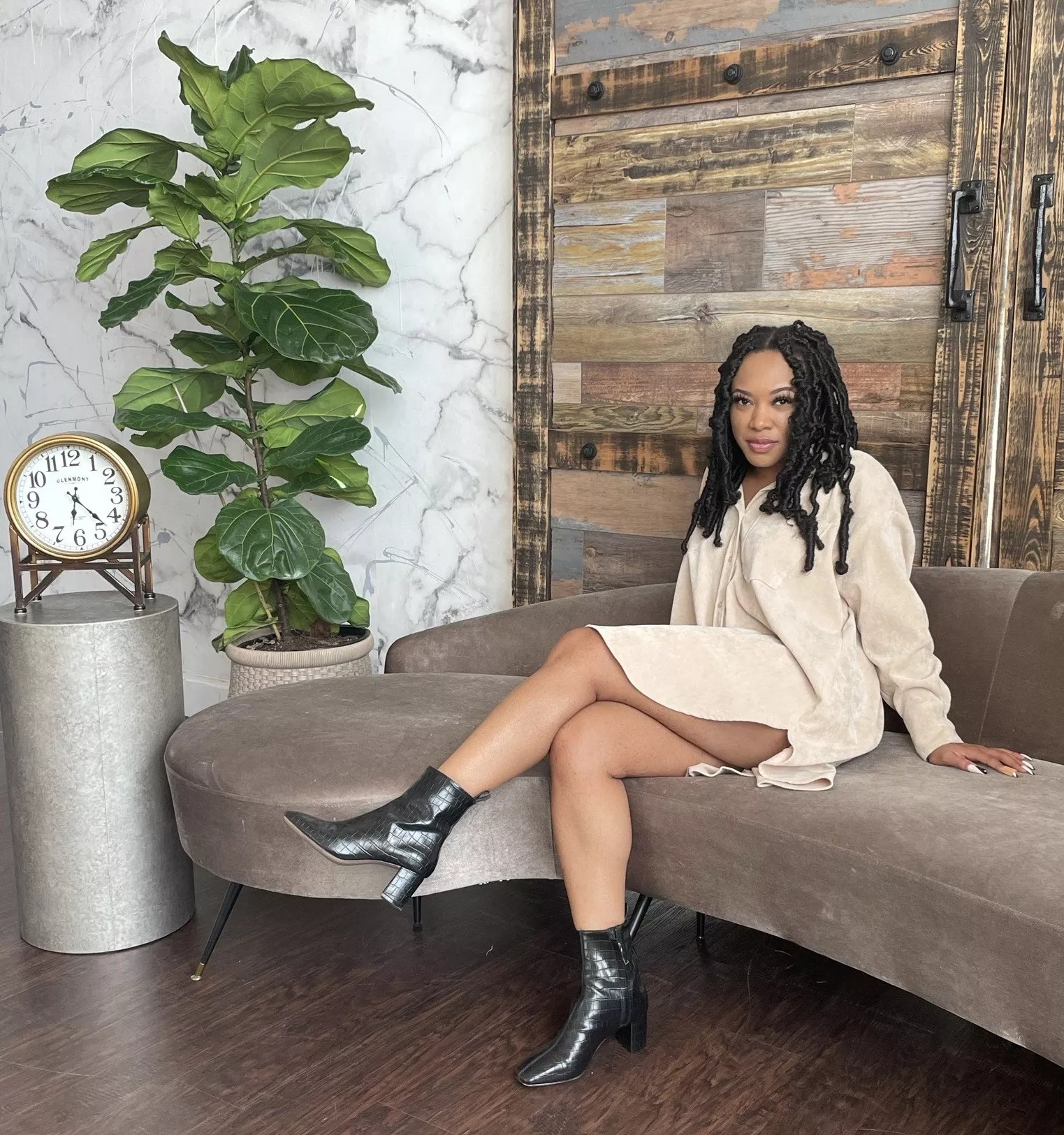
Arturo Rivera

Audio By Carbonatix
Just like everyone else, entrepreneurs have had their ups and downs during the pandemic, but a group of Dallas women has managed to pull through. In fields from music to fitness and literature, these Black female entrepreneurs are leaving their mark on Dallas and helping others in their community and beyond.
C. Nichole, Pan African Think Tank
C.Nichole is a nonprofit founder, world-traveler, publishing house owner, singer-songwriter and television producer. Her nonprofit Pan African Think Tank has locations in Africa, North America, South America, Europe and Oceania and aims to unite people of African descent through education and forums.
In her travels to 97 countries (and counting), Nichole says she’s come to adjust to being met with disdain as a female leader.
“Men don’t look at women the same as they look at them in the Western world,” Nichole says. “So basically, being a woman leader of an organization is like, ‘No, there is no man you can talk to. You’re going to deal with me or you’re not gonna deal with Pan African Think Tank at all.'”
Nichole’s publishing house, Pan African Publishing, educates kids through literature. Children’s book series The Reign teaches historical facts from 20 African groups.
“I’m just wanting to put the focus on the children’s book for right now,” she says. “Because after I finish releasing these next two children’s books, I don’t plan on writing any other books. My focus is on making sure that I’m helping other authors get their books out there.”
Nichole continues to spread the message of her nonprofit through tribal trill, a music genre that’s her own creation, a combination of African groove and percussion and Texas trill. On her album, Pan African Think Tank, Vol. 1, she addresses the stigma around Black fashion and hair as “ghetto” while highlighting African history.
“I’ve moved over to tribal trill for the Pan African Think Tank as I was trying to figure out a way to get the nonprofit out there,” she says. “But also, it is positive and has historical references as well.”

The music industry is made much easier to navigate for artists thanks to LaToya Cooper.
Chris Alvarado
Latoya Cooper, Music Meets the Boardroom
The recording industry can be tough, but navigating it shouldn’t have your brain tangled in knots. Artists looking for a strategy to becoming independent and taking control of their music should look no further than to Latoya Cooper, founder and CEO of Music Meets the Boardroom.
The company provides guidance and resources to indie artists who are looking to develop their brands and learn the business side of music. A singer herself, Cooper left her corporate job to start Music Meets the Boardroom in 2017. Project management, working with executives and helping people build organizations through her career prepared her for launching her own company, where she helps others manage their musical talents.
“Myself, understanding the thinking in the mind of a gifted person, both socially and culturally, there’s not enough nurturing of those type of people,” she says. “I have a passion for helping to make sure that people understand their gifts, understand how to use their gifts. I want to help my artists to understand how to protect their gifts, not only just with the company they have, but also by connecting them with a legal understanding of legal entities to work with and building confidence around them so that when they are in a state where they have to negotiate or contracts are in front of them, they’re not handing over their gift and not seeing the value of it.”
Since the pandemic, Cooper has found artists have had to pivot their focus to find new streams of income. That’s where she steps in to help.
“Now, my whole focus is not only helping the artists get their art created and out there in the world but using it as their business card,” she says. “Right through the door, giving the opportunity for eyes on them and the opportunity to connect with people, then helping them create passive streams of income as what’s next after that.”
Cooper has helped indie artists by offering a membership program, consultations and some free resources she’s made available, like a checklist called “25 Steps to Take Before Releasing Your Music Single.”

Brit Rettig-Wold started a gym after gaining a large following through her blog.
Brit Rettig-Wold
Brit Rettig-Wold, GRIT Fitness
GRIT Fitness has generated a lot of buzz in Dallas for some time now, but you might be surprised to learn it started as a blog before it became a gym. Brit Rettig-Wold, the founder of GRIT, started a blog in 2012 where she documented her weight loss and confidence journey before opening a gym in 2015.
“I had no intention of starting a business. It was just a creative outlet,” Rettig-Wold says. “Then, once I realized how many lives were being impacted by me just being vulnerable sharing my story, I started to realize that there was really a market for women like me, young professionals, hard-working, trying to balance really intense career or health. And that’s where I kind of started to think that maybe there will be an opportunity to create a service for these young professional women of all races, backgrounds, sizes.”
GRIT has three Dallas locations, in the Design District, SMU Boulevard and Addison. There are also virtual and hybrid fitness classes. It’s a space for women to feel comfortable and accepted as they work toward their fitness goals, but it’s also a place to have fun, get a variety of fitness classes and find community.
“What’s changed is that we also are equally focused on being the number one service provider for building community,” she says. “That comes in the form of us hosting women’s retreats, women’s conferences, speaker series. We do social events and happy hours. We do speed networking. We have connect groups and all of those things are equally as important as the fitness. So, both [fitness and building community] are our priorities, and they go hand-in-hand because studies and research show that when you’ve feel connected to a purpose higher than yourself, connected to a larger group of people, you are more likely to work hard, despite obstacles and persevere.”
When the pandemic forced gyms to close last year, Rettig-Wold persevered and refocused with her clients in mind, pushing her team through with pep talks and strategy planning. For her, “grit” is more than a name for her studio and blog. It’s her driving force in everything.

Mogul Millennial is a smart media company founded by the even smarter Brittani Hunter.
Brittani Hunter
Brittani Hunter, Mogul Millennial
There are many sites for Black millennials dedicated to gossip and entertainment, but Mogul Millennial isn’t one of them. Founded by Brittani Hunter in 2017, Mogul Millennial is a smart media company with resources such as web courses and virtual programming, for millennial corporate professionals and founders.
“What we do is help this target audience reach goals and just create long-lasting successful careers and companies through our smart content resources,” Hunter says. “We started as a side hustle, a hobby, when I saw that there was a need for more content that was catered towards a young Black audience.”
Initially, Mogul Millennial was geared toward young professionals rather than entrepreneurs. Now, it’s a one-stop-shop for both and more detailed in its content. Hunter wanted her brand to be enjoyable and easy for reader engagement.
“We’ve had someone that engages with our brand on LinkedIn, and she told me that Mogul Millennial feels like her super successful cousin that she could learn from and that she could go to day parties with or go to brunch with and have a drink,” she says. “So that was really like the vibe and the energy that we love for our community to get from our site. You know it’s not stuffy, over-the-top content. It’s very conversational, but it’s also educational at the same time. Some of the responses that we’ve gotten are that our resources, or even our virtual programming, can help people to make up a new career or a new business.”

Ayana Poole’s long love affair with books led to her founding the first Black-owned book publisher in Dallas.
Ayana Poole
Ayanna Poole, Jesmer Books
Ayanna Poole is making history as the CEO of Jesmer Books, the first Black-owned book publishing company in Dallas, which launched in February.
Poole is also a seventh-grade English teacher in Duncanville and a national activist who’s worked with Spike Lee on a documentary called 2 Fists Up. Her great-grandfather’s extensive library and love of literature inspired her to start Jesmer books, named after her great-grandmother, Nora Jessmer Wheeler.
“In his office, he had well over 50,000 books,” Poole says. “He had a library, and I would look at the binding of the book, right, and I would look at the beauty of the book. I was so young and I didn’t understand the literature in it, but I was just amazed by how the books were structured and how these old books had these pages that looked like they came from a Bible and Golden Ages. That’s when I really developed this love for literature and books.”
Poole was driven by the 2014 Ferguson protests, which she attended, as well as a desire to give a voice to the voiceless, to fulfill her publishing dreams. Her vision for Jesmer Books is a publishing company that breaks the traditional mold.
“I wanted to develop something that was very, very unique in comparison to what the publishing industry looks like now,” she says. “In a way that promotes authorship amongst oppressed people, but also in a way that helps to continue to build people of color and oppressed people. That is the foundation of Jesmer Books, this long story of this love for literature and this long story of this activism that I’ve done nationally and bringing those two loves together in order to serve my community and its myriad of people in a way that we haven’t seen happen before.”